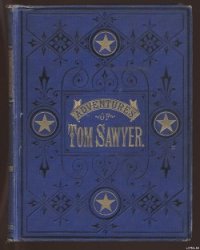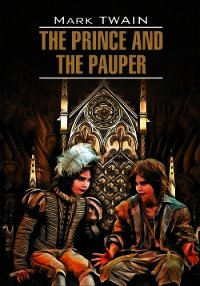Английский язык с Марком Твеном. Принц и нищий (Mark Twain. The Prince and the Pauper) - Twain Mark (читать хорошую книгу полностью .txt) 📗
The next moment (в следующий момент) Sir Miles's thoughts (мысли сэра Майлса) had gone back (вернулись: «пошли назад»; to go — идти) to the recent episode (к недавнему эпизоду). So absorbed was he in his musings (так поглощен он был в своих размышлениях), that when the king presently handed him the paper (что когда король вскоре вручил ему бумагу) which he had been writing (которую он писал), he received it (он получил ее) and pocketed it (и положил ее в карман) without being conscious (не осознавая: «без того, чтобы быть осознающим») of the act (этого действия). 'How marvelous strange she acted (как удивительно странно она вела себя),' he muttered (он пробормотал). 'I think she knew me (я думаю, она узнала меня; to know — знать) — and I think she did not know me (и я думаю, что она не узнала меня). These opinions do conflict (эти мнения конфликтуют), I perceive it plainly (я вижу это ясно); I cannot reconcile them (я не могу примирить их), neither can I (и я не могу; neither — и не), by argument (на основании разумных доводов), dismiss either of the two (отвергнуть ни одно из этих двух), or even persuade one to outweigh the other (или даже убедить одно перевесить другое). The matter standeth simply thus (дело обстоит просто так): she must have known my face (она, должно быть, узнала мое лицо; must — должен), my figure, my voice (мою фигуру, мой голос), for how could it be otherwise (ибо как могло это быть иначе)? Yet she said she knew me not (и все же она сказала, что не узнала меня), and that is proof perfect (и это доказательство совершенное), for she cannot lie (ибо она не может лгать). But stop (но стой) — I think I begin to see (я думаю, я начинаю видеть = понимать). Peradventure he hath influenced her (возможно, он оказал влияние на нее) — commanded her (приказал ей) — compelled her to lie (вынудил ее солгать). That is the solution (вот решение)! The riddle is unriddled (загадка разгадана). She seemed dead with fear (она казалась помертвевшей от страха) — yes, she was under his compulsion (да, она была под его принуждением). I will seek her (я буду искать ее); I will find her (я найду ее); now that he is away (сейчас, когда он далеко), she will speak her true mind (она выскажет свои истинные мысли). She will remember the old times (она вспомнит старые времена) when we were little playfellows together (когда мы были маленькими товарищами по играм вместе; fellow — товарищ), and this will soften her heart (и это смягчит ее сердце), and she will no more betray me (и она не будет больше предавать меня), but will confess me (но признает меня). There is no treacherous blood in her (нет предательской крови в ней) — no, she was always honest and true (нет, она всегда была честна и верна). She has loved me in those old days (она любила меня в те старые дни) — this is my security (это мне порука); for whom one has loved, one cannot betray (ибо кого человек любил, он не может предать).'
He stepped eagerly toward the door (он ступил нетерпеливо к двери); at that moment it opened (в тот же момент она открылась), and the Lady Edith entered (и леди Эдит вошла). She was very pale (он была очень бледна), but she walked with a firm step (но она шагала крепким шагом), and her carriage was full of grace and gentle dignity (и ее стать была полна изящества и кроткого достоинства). Her face was as sad as before (ее лицо было так же печально, как прежде).
Miles sprang forward (Майлс ринулся вперед; to spring — прыгать), with a happy confidence (с радостной доверчивостью), to meet her (чтобы встретить ее), but she checked him (но она остановила его) with a hardly perceptible gesture (едва заметным жестом), and he stopped where he was (и он остановился, где он был). She seated herself (она уселась), and asked him to do likewise (и попросила его сделать так же). Thus simply did she take the sense of old-comradeship out of him (так просто вынула она чувство старого товарищества из него = лишила его…), and transform him into a stranger and a guest (и преобразила его в незнакомца и гостя). The surprise of it (удивление этого), the bewildering unexpectedness of it (озадачивающая неожиданность этого), made him begin to question (заставила его усомниться: «начать сомневаться»), for a moment (на секунду), if he was the person he was pretending to be (был ли он человеком, которым он притворялся быть), after all (в конце концов: «после всего»). The Lady Edith said (леди Эдит сказала):
'Sir, I have come to warn you (сэр, я пришла предупредить вас). The mad cannot be persuaded out of their delusions, perchance (сумасшедшие не могут быть разубеждены в своих заблуждениях, возможно); but doubtless they may be persuaded to avoid perils (но, несомненно, они могут быть убеждены избежать погибели). I think this dream of yours (я думаю, что эта мечта ваша) hath the seeming of honest truth to you (имеет вид истинной правды для вас), and therefore is not criminal (и, следовательно, не является преступной) — but do not tarry here with it (но не медлите здесь с ней); for here it is dangerous (ибо это опасно).' She looked steadily into Miles's face a moment (она смотрела неотрывно в лицо Майлса минуту), then added, impressively (за тем добавила выразительно), 'It is the more dangerous for (это тем более опасно из-за того) that you are much like (что вы много = очень похожи на то) what our lost lad must have grown to be (чем наш потерянный мальчик должен был вырасти, чтобы быть), if he had lived (если бы он выжил).'
'Heavens, madam (Боже мой, мадам), but I am he (но я — он)!'
recent [`ri:s?nt], honest [`On?st], steadily [`sted?l?]
The next moment Sir Miles's thoughts had gone back to the recent episode. So absorbed was he in his musings, that when the king presently handed him the paper which he had been writing, he received it and pocketed it without being conscious of the act. 'How marvelous strange she acted,' he muttered. 'I think she knew me — and I think she did not know me. These opinions do conflict, I perceive it plainly; I cannot reconcile them, neither can I, by argument, dismiss either of the two, or even persuade one to outweigh the other. The matter standeth simply thus: she must have known my face, my figure, my voice, for how could it be otherwise? Yet she said she knew me not, and that is proof perfect, for she cannot lie. But stop — I think I begin to see. Peradventure he hath influenced her — commanded her — compelled her to lie. That is the solution! The riddle is unriddled. She seemed dead with fear — yes, she was under his compulsion. I will seek her; I will find her; now that he is away, she will speak her true mind. She will remember the old times when we were little playfellows together, and this will soften her heart, and she will no more betray me, but will confess me. There is no treacherous blood in her — no, she was always honest and true. She has loved me in those old days — this is my security; for whom one has loved, one cannot betray.'
He stepped eagerly toward the door; at that moment it opened, and the Lady Edith entered. She was very pale, but she walked with a firm step, and her carriage was full of grace and gentle dignity. Her face was as sad as before.
Miles sprang forward, with a happy confidence, to meet her, but she checked him with a hardly perceptible gesture, and he stopped where he was. She seated herself, and asked him to do likewise. Thus simply did she take the sense of old-comradeship out of him, and transform him into a stranger and a guest. The surprise of it, the bewildering unexpectedness of it, made him begin to question, for a moment, if he was the person he was pretending to be, after all. The Lady Edith said:
'Sir, I have come to warn you. The mad cannot be persuaded out of their delusions, perchance; but doubtless they may be persuaded to avoid perils. I think this dream of yours hath the seeming of honest truth to you, and therefore is not criminal — but do not tarry here with it; for here it is dangerous.' She looked steadily into Miles's face a moment, then added, impressively, 'It is the more dangerous for that you are much like what our lost lad must have grown to be, if he had lived.'




